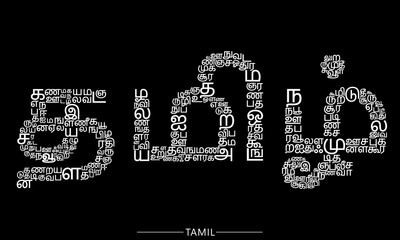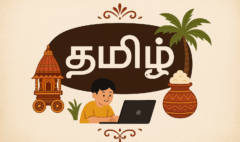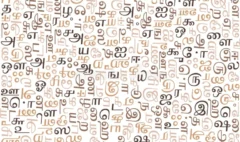Tamil Vocabulary for the Bathroom and Personal Hygiene
Tamil Vocabulary for the Bathroom and Personal Hygiene
Tamil Vocabulary for the Bathroom and Personal Hygiene: A Guide to Daily Routines
The language of our daily routines is the language of our lives. The small, repeated actions we perform every day—washing our hands, brushing our teeth, taking a bath—are the building blocks of our well-being. For anyone learning the Tamil language, and especially for parents teaching their children, mastering the vocabulary for the bathroom and for personal hygiene in Tamil is a fundamental and incredibly practical part of the journey. These are the words that are used every single morning and every single night, making them a perfect and natural way to integrate the language into your family’s daily life. A good grasp of this vocabulary is a cornerstone of any conversation about health and hygiene.
This comprehensive guide is designed to be your essential resource for all the words related to the bathroom (குளியலறை – Kuḷiyalaṟai). We will cover the names for the fixtures, the essential Tamil words for toiletries, and the verbs that describe our daily hygiene practices. This practical bathroom vocabulary is a simple but powerful tool for making Tamil a living, breathing part of your home.
Part 1: In the Bathroom (குளியலறையில் – Kuḷiyalaṟaiyil) – The Key Fixtures
Let’s start with the names of the main fixtures and objects you will find in a typical bathroom.
- Bathroom – குளியலறை (Kuḷiyalaṟai)
- Toilet – கழிப்பறை (Kaḻippaṟai)
- Tap / Faucet – குழாய் (Kuḻāy)
- Shower – ஷவர் (Ṣavar) – The English word is commonly used.
- Sink / Washbasin – கை கழுவும் தொட்டி (Kai kaḻuvum toṭṭi)
- Mirror – கண்ணாடி (Kaṇṇāṭi)
- Water Heater / Geyser – கீசர் (Kīcar) – The English word is common.
- Bucket – வாளி (Vāḷi)
- Mug – குவளை (Kuvaḷai)
- Door – கதவு (Katavu)
- Floor – தரை (Tarai)
- Wall – சுவர் (Cuvar)
Part 2: Essential Toiletries and Personal Care Items
These are the crucial Tamil words for toiletries that we use every day to keep ourselves clean and healthy.
- Soap – சோப்பு (Sōppu) or வழலைக்கட்டி (Vaḻalaikkaṭṭi)
- Towel – துண்டு (Tuṇṭu)
- Toothbrush – பல் துலக்கி (Pal tulakki)
- Toothpaste – பற்பசை (Paṟpacai)
- Shampoo – ஷாம்பு (Ṣāmpu) or சீயக்காய் (Cīyakkāy – a traditional herbal hair wash)
- Comb – சீப்பு (Cīppu)
- Water – தண்ணீர் (Taṇṇīr)
- Hot Water – சுடு தண்ணீர் (Cuṭu taṇṇīr)
- Cold Water – குளிர்ந்த நீர் (Kuḷirnta nīr)
- Powder – பவுடர் (Pavṭar)
- Nail Cutter – நகம் வெட்டி (Nakam veṭṭi)
- Razor – சவரக்கத்தி (Cavarakkatti)
Part 3: The Language of Action – Personal Hygiene Verbs
Knowing the names of the objects is the first step. The next is to learn the verbs that describe what we do with them. This is the core vocabulary for personal hygiene in Tamil.
- To bathe / To take a shower – குளிப்பது (kuḷippatu)
Sentence: “நான் காலையில் குளிப்பேன்.” (Nāṉ kālaiyil kuḷippēṉ.) – “I will bathe in the morning.” - To wash – கழுவுவது (kaḻuvuvatu)
Sentence: “உங்கள் கைகளைக் கழுவுங்கள்.” (Uṅkaḷ kaikaḷaik kaḻuvuṅkaḷ.) – “Wash your hands.” - To wash the face – முகம் கழுவுவது (mukam kaḻuvuvatu)
- To brush the teeth – பல் துலக்குவது (pal tulakkuvatu)
Sentence: “தினமும் இரண்டு முறை பல் துலக்க வேண்டும்.” (Tiṉamum iraṇṭu muṟai pal tulakka vēṇṭum.) – “You should brush your teeth two times a day.” - To comb the hair – தலை சீவுவது (talai cīvuvatu)
- To wipe – துடைப்பது (tuṭaippatu)
Sentence: “துண்டால் உங்கள் முகத்தைத் துடைக்கவும்.” (Tuṇṭāl uṅkaḷ mukattait tuṭaikkavum.) – “Wipe your face with the towel.” - To pour – ஊற்றுவது (ūṟṟuvatu)
- To brush / To scrub – தேய்ப்பது (tēyppatu)
Part 4: Putting It All Together – A Daily Routine Dialogue
The best way to learn this vocabulary is to use it in the context of a daily routine. This is a perfect conversation for a parent to have with their child every morning.
Parent: “ராஜா, எழுந்திரு. காலை ஆகிவிட்டது.” (Rājā, eḻuntiru. Kālai ākiviṭṭatu.) – “Raja, wake up. It’s morning.”
Parent: “முதலில், போய் பல் துலக்கு.” (Mutalil, pōy pal tulakku.) – “First, go brush your teeth.”
Child: “சரி, அம்மா. பற்பசை எங்கே?” (Cari, ammā. Paṟpacai eṅkē?) – “Okay, Mom. Where is the toothpaste?”
Parent: “அது அங்கே இருக்கிறது. பிறகு, போய் குளி.” (Atu aṅkē irukkiṟatu. Piṟaku, pōy kuḷi.) – “It is there. After that, go take a bath.”
Child: “எனக்கு சுடு தண்ணீர் வேண்டும்.” (Eṉakku cuṭu taṇṇīr vēṇṭum.) – “I want hot water.”
Parent: “குளித்த பிறகு, சுத்தமான துண்டால் துடை.” (Kuḷitta piṟaku, cuttamāṉa tuṇṭāl tuṭai.) – “After bathing, wipe with a clean towel.”
Parent: “தலை சீவ மறக்காதே.” (Talai cīva maṟakkātē.) – “Don’t forget to comb your hair.”
The Importance of Health and Hygiene (சுகாதாரம் – Cukātāram)
Learning this vocabulary is also a great opportunity to teach children the importance of good hygiene practices.
- “Cleanliness is important for health.” – “ஆரோக்கியத்திற்கு சுத்தம் அவசியம்.” (Ārōkkiyattiṟku cuttam avaciyam.)
- “We should wash our hands before eating.” – “சாப்பிடுவதற்கு முன் நாம் கைகளைக் கழுவ வேண்டும்.” (Cāppiṭuvataṟku muṉ nām kaikaḷaik kaḻuva vēṇṭum.)
Conclusion: The Language of Daily Care
The vocabulary for the bathroom and personal hygiene is the language of our most intimate and essential daily routines. It is the language of self-care, of cleanliness, and of well-being. By making these words a part of your family’s everyday conversations, you are doing more than just teaching Tamil. You are creating a natural and immersive language environment in your own home, and you are reinforcing the important life lessons of health and hygiene. This practical bathroom vocabulary is a simple but powerful tool for building a strong and lasting foundation in the Tamil language.









